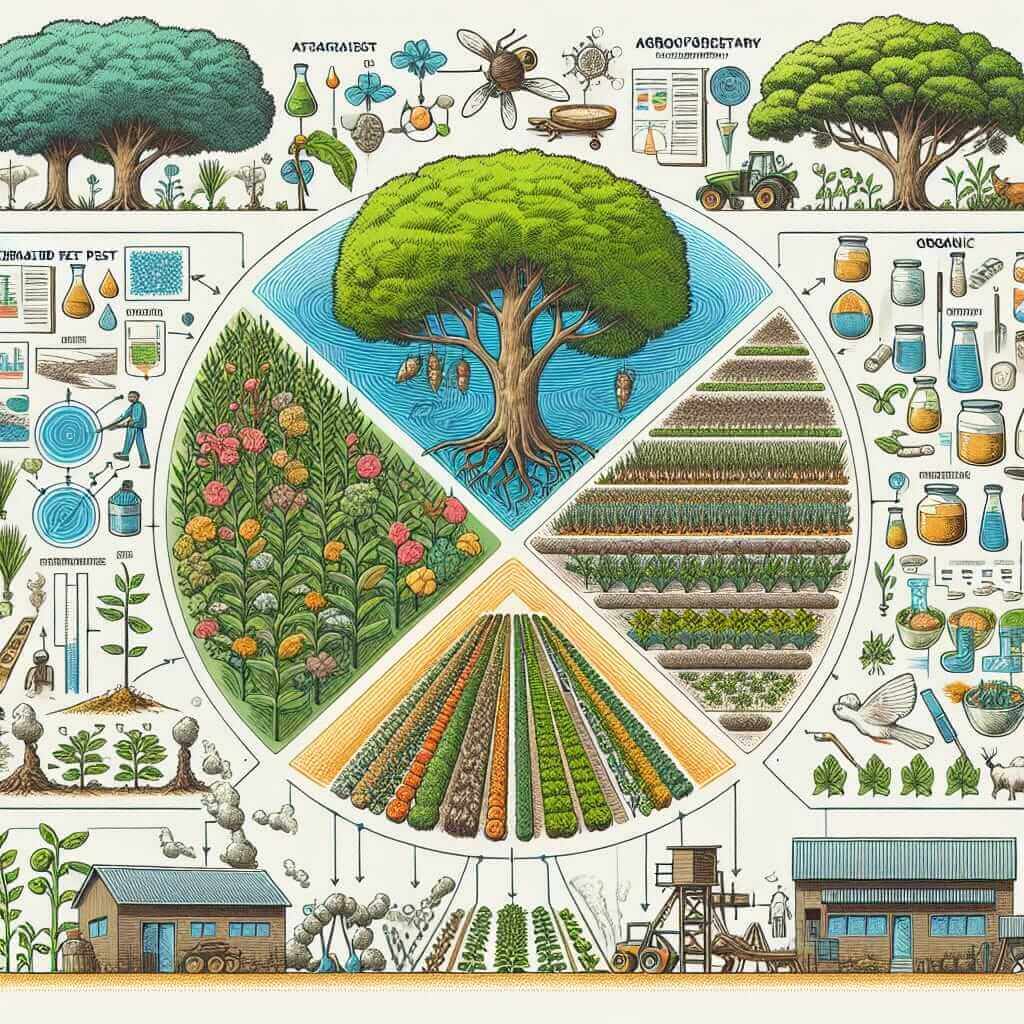The IELTS Reading section evaluates your ability to understand and interpret texts that you are likely to encounter in an academic environment. This might include descriptive, factual, and analytical texts. Understanding specific issues like the “Benefits and risks of genetically modified crops, methods for achieving sustainable agriculture in developing countries” is critical, as this topic has appeared multiple times in past IELTS exams and is highly relevant to current global discussions. This article will guide you through a sample IELTS Reading passage, questions, and answers on this topic.
Sample IELTS Reading Passage
Below is a Medium Text format subtitle, designed to simulate a real IELTS Reading passage:
Benefits and Risks of Genetically Modified Crops
Genetically modified (GM) crops have been heralded as a solution to some of the world’s most pressing food security challenges. Proponents argue that GM crops can increase yields, reduce dependence on pesticides, and offer enhanced nutritional profiles. For instance, Golden Rice, a variety of rice engineered to contain high levels of Vitamin A, aims to combat malnutrition in countries where rice is a staple food. Similarly, Bt cotton, which is genetically modified to produce a toxin that wards off pests, has substantially reduced the need for chemical pesticides in several countries.
Despite these advantages, GM crops are not without controversy. Critics point out the potential environmental risks, such as gene transfer to wild species and the development of pesticide-resistant pests. Additionally, there are concerns about economic implications for small-scale farmers who may not afford the patented seeds and associated technologies. Long-term health effects on humans consuming GM crops are also a topic of ongoing research and debate.
Methods for Achieving Sustainable Agriculture in Developing Countries
Achieving sustainable agriculture in developing nations is a complex challenge that requires a multifaceted approach. Integrated Pest Management (IPM) is one such method, which combines biological control, crop rotation, and the judicious use of pesticides to minimize environmental impact. Agroforestry, where trees are planted alongside crops, helps preserve soil fertility and provides additional income through timber and fruit.
Another promising approach is the use of organic farming techniques, which avoid synthetic inputs and emphasize crop diversity to build resilience against pests and diseases. Additionally, adopting water-conservative practices like drip irrigation can significantly improve water use efficiency. Knowledge sharing and training for local farmers are crucial in implementing these sustainable methods effectively.

Sample Questions
Multiple Choice Questions
-
What is one benefit of Golden Rice mentioned in the passage?
- A. It increases crop yield.
- B. It contains high levels of Vitamin A.
- C. It reduces pesticide usage.
- D. It is resistant to pests.
-
Which is not a potential risk of genetically modified crops?
- A. Economic issues for small-scale farmers.
- B. Gene transfer to wild species.
- C. Improved crop rotation techniques.
- D. Development of pesticide-resistant pests.
Identifying Information (True/False/Not Given)
-
Bt cotton has reduced the need for chemical pesticides in some countries. (True/False/Not Given)
-
The long-term health effects of consuming GM crops have been conclusively proven. (True/False/Not Given)
Matching Information
Match the following methods with their descriptions:
-
Drip irrigation
-
Agroforestry
-
Integrated Pest Management
- A. Combines biological control and crop rotation.
- B. Helps preserve soil fertility and provides additional income.
- C. Improves water use efficiency.
Sentence Completion
- One of the primary benefits of GM crops is their potential to __.
Summary Completion
Fill in the blanks in the summary below:
GM crops have been recognized for potentially increasing yield and __. However, concerns include environmental risks and __, particularly for small-scale farmers. Sustainable agriculture methods like __ and __ are essential for developing countries to improve food security without compromising environmental health.
Answers and Detailed Explanations
- B. Golden Rice is developed to contain high levels of Vitamin A to combat malnutrition.
- C. Improved crop rotation techniques are not mentioned as a risk.
- True. The passage mentions Bt cotton has reduced the need for chemical pesticides in several countries.
- False. The passage states that the long-term health effects are an ongoing topic of research and debate, not conclusively proven.
- C. Drip irrigation improves water use efficiency.
- B. Agroforestry helps preserve soil fertility and provides additional income.
- A. Integrated Pest Management combines biological control and crop rotation.
- Increase nutritional profiles, such as Golden Rice containing high levels of Vitamin A.
Common Mistakes
- Overlooking key details: It’s crucial to read the questions carefully and ensure you understand what is being asked before answering.
- Misinterpreting information: Make sure to differentiate between what is stated, implied, or not mentioned.
- Ignoring context: Contextual clues in the passage can guide you to the correct answers, so always consider the broader context.
Vocabulary
- Heralded /ˈherəldɪd/: publicly praised or announced.
- Malnutrition /ˌmælnuːˈtrɪʃən/: lack of proper nutrition.
- Pesticide /ˈpɛstɪsaɪd/: a substance used for destroying insects or other organisms harmful to plants or animals.
- Agroforestry /ˈæɡrəʊˌfɒrɪstri/: agriculture incorporating the cultivation and conservation of trees.
Grammar
- Passive voice: “GM crops have been heralded…” Passive voice is useful to emphasize the action rather than the doer.
- Relative clauses: “…which is genetically modified to produce a toxin…” Relative clauses provide additional information about a noun.
Tips for High Reading Scores
- Practice regularly: Familiarize yourself with a wide range of topics and text types encountered in the IELTS exam.
- Expand your vocabulary: Knowing more words will help you understand texts better and quicker.
- Master time management: Allocate your time wisely to ensure you have enough to answer all questions.
- Read instructions carefully: Small details like ‘True, False, Not Given’ can critically affect your answers.
By comprehending the benefits and risks associated with genetically modified crops and methods for achieving sustainable agriculture, you will be better prepared for similar texts in the IELTS Reading section.